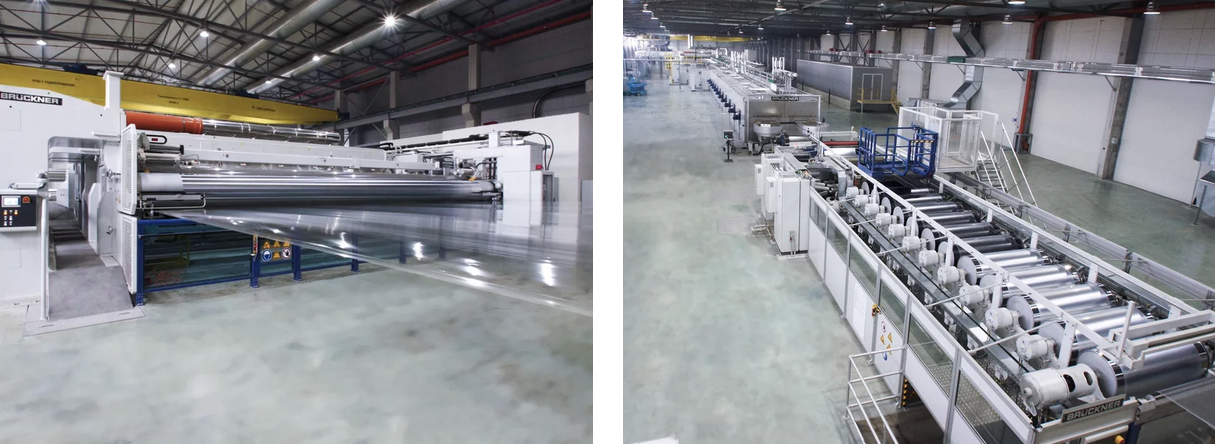What influences the carbon footprint of a plastic film and where is the greatest potential for reduction? Brückner Maschinenbau, supplier of film stretching lines, and the energy consulting company envistra investigated this question in a study. Based on the data from a running film production plant in Eastern Europe, the energy consumption and emissions of the plant as well as the specific emissions from the production and transport of the raw materials were recorded.
Result: Per square meter of oriented polypropylene film (BOPP), the proportion of energy-related CO2 emissions from the production plant is around 12%, while the CO2 emissions from the manufacture of the raw materials are just under 72%. The remaining 16% is accounted for by packaging, transport and, in this example, thermal recycling. This clearly showed that the greater lever for reducing CO2 emissions lies in the raw materials used.
By using 30% recyclate, it was also possible to reduce the total CO2 emissions by 20%, from 2.744 kg to 2.193 kg per kilogram of film produced. If you consider that modern Brückner film stretching systems produce around 8,000 kg per hour, the reduction in CO2 emissions when using recyclate is even more striking, namely with 4.4 tons fewer emissions per hour of production.
Michael Baumeister, Managing Director/CTO of Brückner Maschinenbau: “For us, a continuously declining use of fossil raw materials and ever lower energy consumption in film production are traditional goals in the further development of stretching technology. We have also devoted ourselves to the increased use of recyclates in research and development for years. The study under real production conditions is now another important step.”
Steffen Kuhnigk, process engineer at Brückner Maschinenbau, is already active in several cooperations and initiatives and hopes to convince new partners with the results of the current study: “Recyclate quality, availability and new areas of application for films containing recyclate must be developed together. To do this, we need all members of the value chain, from recyclers and raw material manufacturers to branded owners and retailers. And politics and legislation must also be on board.”

Source
Brückner Maschinenbau, press release, 2023-08-10.
Supplier
Brückner Maschinenbau
envistra GmbH
Share
Renewable Carbon News – Daily Newsletter
Subscribe to our daily email newsletter – the world's leading newsletter on renewable materials and chemicals









